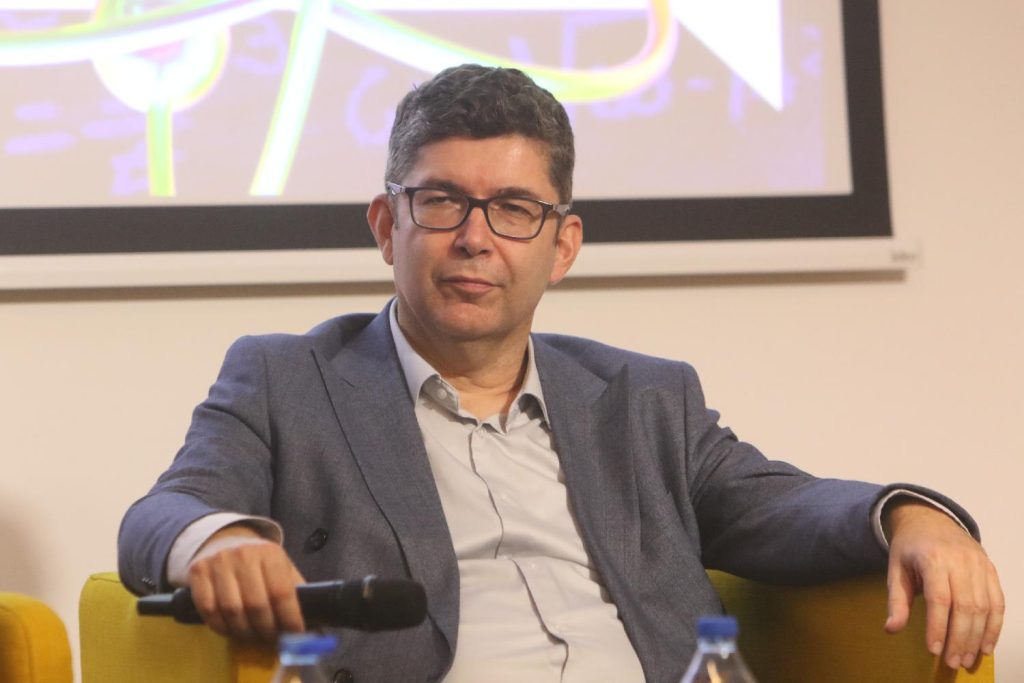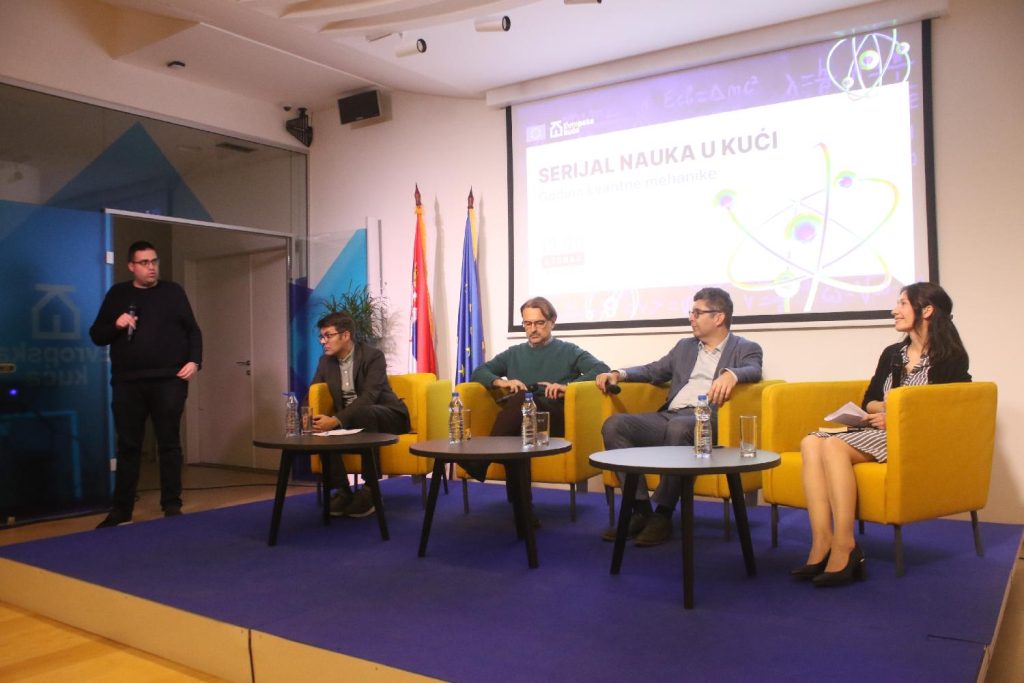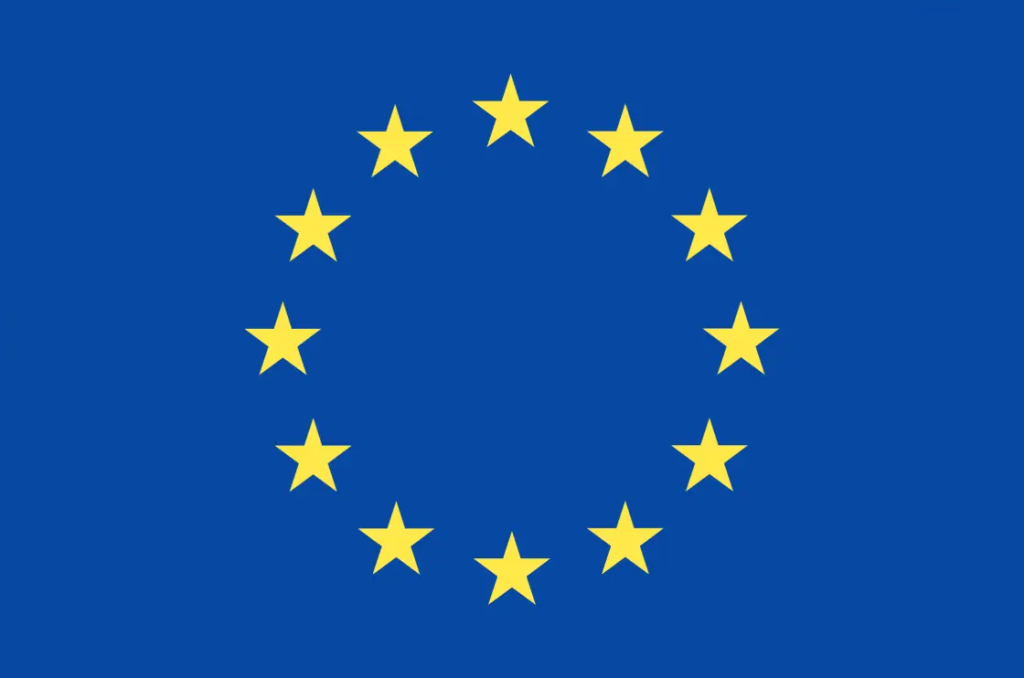There are countless questions we still can’t answer, and many brilliant ideas about what those answers might be. Quantum mechanics stands at the heart of modern physics — full of contradictions, paradoxes, and endless intrigue.
The year 2025 has been declared the Year of Quantum Mechanics.Exactly a century ago, a group of physicists—driven by the quest to understand atoms—uncovered a discipline that defied human intuition. In the years that followed, quantum mechanics transformed the world. And that’s why it became the focus of the first panel in the series "Science in the House".
A professor at the Faculty of Physics, University of Belgrade Duško Latas, a professor at the Faculty of Philosophy, University of Belgrade Slobodan Perović and a special online guest, a professor at the Technical University of Vienna Časlav Brukner discussed the topic at the Europe House with the authors of “Science Through Stories”, Slobodan Bubnjević and Marija Đurić.

“Quantum mechanics has remained relevant because it is a good theory,” said the professor from the Faculty of Physics, University of Belgrade Duško Latas, adding:
“It’s here with all its contradictions and paradoxes. In a way, it’s like a mobile phone—we all use it, but few truly understand how it actually works,” said professor Latas.
One of its applications, also most accessible to the general public, is the development of quantum computers. In theory, they could have far greater capabilities than standard computers. However, the professor from the Faculty of Philosophy Slavko Perović cautions against overly high expectations:
“It will still take a long time before we see quantum computers. Of course, one can never predict with new technologies—there might be some incredible breakthrough that no one anticipates—but this is something that will certainly take decades. If the technology is adopted, if it truly becomes usable, it will become one of the fundamental technologies. This is definitely the first horizon of quantum mechanics applications that we are currently witnessing, as we follow the development of this technology,” said Professor Perović.
Latas believes that technical challenges are the main obstacle to bringing quantum computers into everyday use, and the panelists agree that when that moment arrives, interest in this field of science will also grow.

The panel guests were also able to listen to a brief conversation with a professor from the University of Vienna Časlav Brukner, who was born in Novi Sad and now works in a laboratory alongside one of the recipients of the Nobel Prize in Physics. Anton Zeilinger, John Clauser, and Alain Aspect were awarded for experiments that demonstrated the principles of quantum entanglement.
“From that moment, only a small step separated us from accepting and using those strange laws of quantum mechanics in a second technological revolution—the quantum revolution. The first brought semiconductors, and this second one is set to deliver a new way of processing information—what we call quantum information. And it is precisely based on those strange phenomena, such as quantum entanglement,” said Brukner.
You can watch a recording of the full panel here.
Series of Scientific Panels Science in the House is conducted in collaboration with the portal “Science Through Stories”,with the aim of bringing the most current scientific topics closer to the general public. The next panels are scheduled for November 25, when the question “Where Are the Aliens?” will be addressed, and December 22, focusing on the topic of artificial intelligence.
